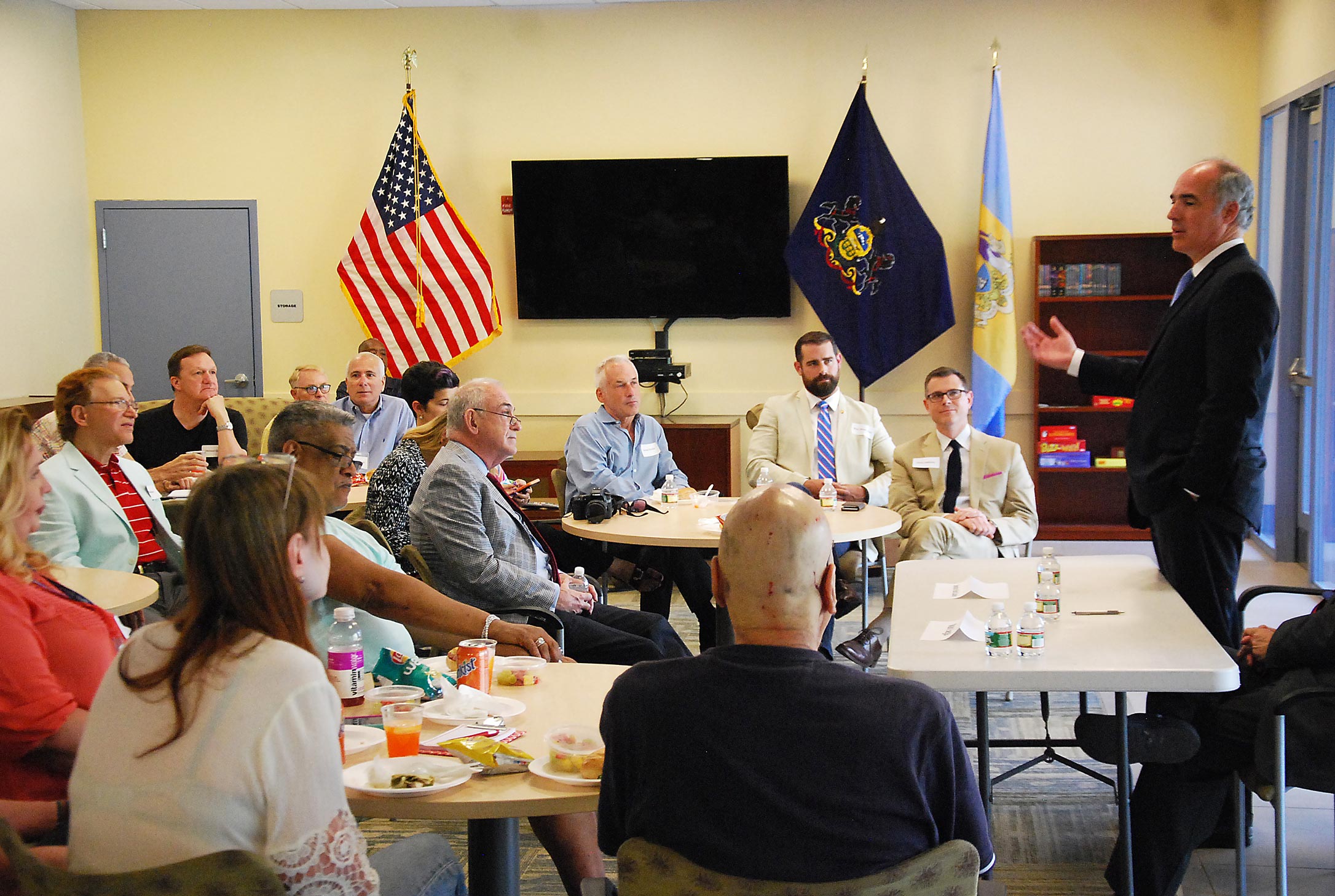U.S. Sen. Bob Casey said lawmakers could find new ways to push the Equality Act with lessons they learned in recent weeks — through a House sit-in on gun reform and a Senate Democratic proceeding involving Judge Merrick Garland, the Supreme Court nominee whom Republicans have refused to consider.
“We’re getting smarter and more effective at using other strategies that other people have used in years past to create attention and focus,” Casey told about 50 LGBT advocates gathered June 27 at the John C. Anderson Apartments.
The senator spent an hour at the LGBT-friendly senior apartments listening to community concerns about LGBT homeless youth, funding for programs and passing nondiscrimination protections at the state and federal levels. Casey wanted to connect with the LGBT community in the wake of last month’s shooting at an Orlando LGBT nightclub.
The Scranton Democrat said it’s critical to get media attention for LGBT bills without being prompted by a horrific incident. He added the Equality Act — which would ban LGBT discrimination in housing, employment, public accommodations and other areas — has not yet had a committee hearing, the first step before it reaches the Senate floor for a vote.
“The best way for us to keep the Equality Act in front of people and to really advocate for it is to do things at home,” Casey said, “to do things in states and congressional districts across the country so people know what we’re talking about.”
As a lawmaker, Casey pledged to make the case for the Equality Act not just in Philadelphia, but also in places of the state where there is less support.
“Part of this is challenging people to disagree, but also engaging them and trying to persuade,” he said. “We’ve got to go to places where there’s an argument.”
Deja Lynn Alvarez, director of the Divine Light LGBTQ Wellness Center in North Philadelphia, wanted to know what Casey thought of the state legislature pursuing three separate nondiscrimination bills. She said many think the community should settle for antibias protections in housing and employment, but forgo public-accommodations protections.
“The trans community will be the ones hit the hardest if public accommodations are not covered,” Alvarez said. “I find that a little difficult for myself and my community to swallow.”
Casey said the federal Equality Act still outlines comprehensive protections from discrimination.
“At this time I don’t think there’s any strategy that would involve truncating it or only focusing on some of the titles in the Civil Rights Act as opposed to others.”
In terms of funding for LGBT initiatives, Casey said it’s been about a decade since legislators were able to earmark small dollar amounts for projects. He said it used to be a way to give a seal of approval to a project in hopes of further government or private funds.
Casey added he would have his staff look into grant options for specific projects. Chris Bartlett, executive director of the William Way LGBT Community Center, wanted Casey’s office to guide him and the directors of the seven other LGBT centers in Pennsylvania on applying for federal funds to make their buildings more secure.
“We don’t want to be fortresses,” Bartlett said. “But we can look at things that would make the center safer for our community. I think we’re really finding that’s a top priority.”
According to FBI data from 2014, hate crimes disproportionately affect LGBT people.
“Orlando is a wake-up call,” Casey said. “It’s not some theory. We have numbers that back up that [LGBT people are] a huge target for a lot of hate and a lot of violence. We need to use that as leverage to seek those dollars.”

